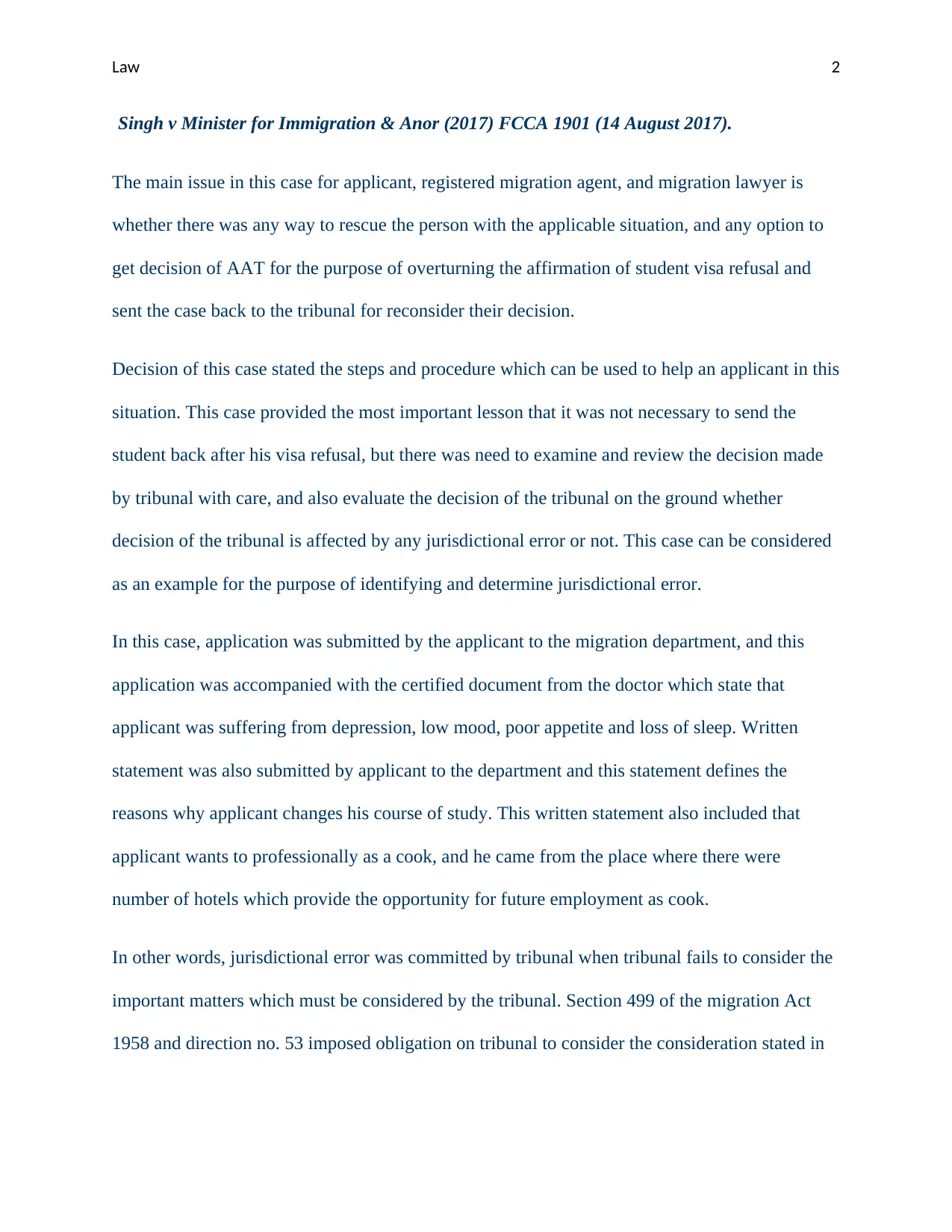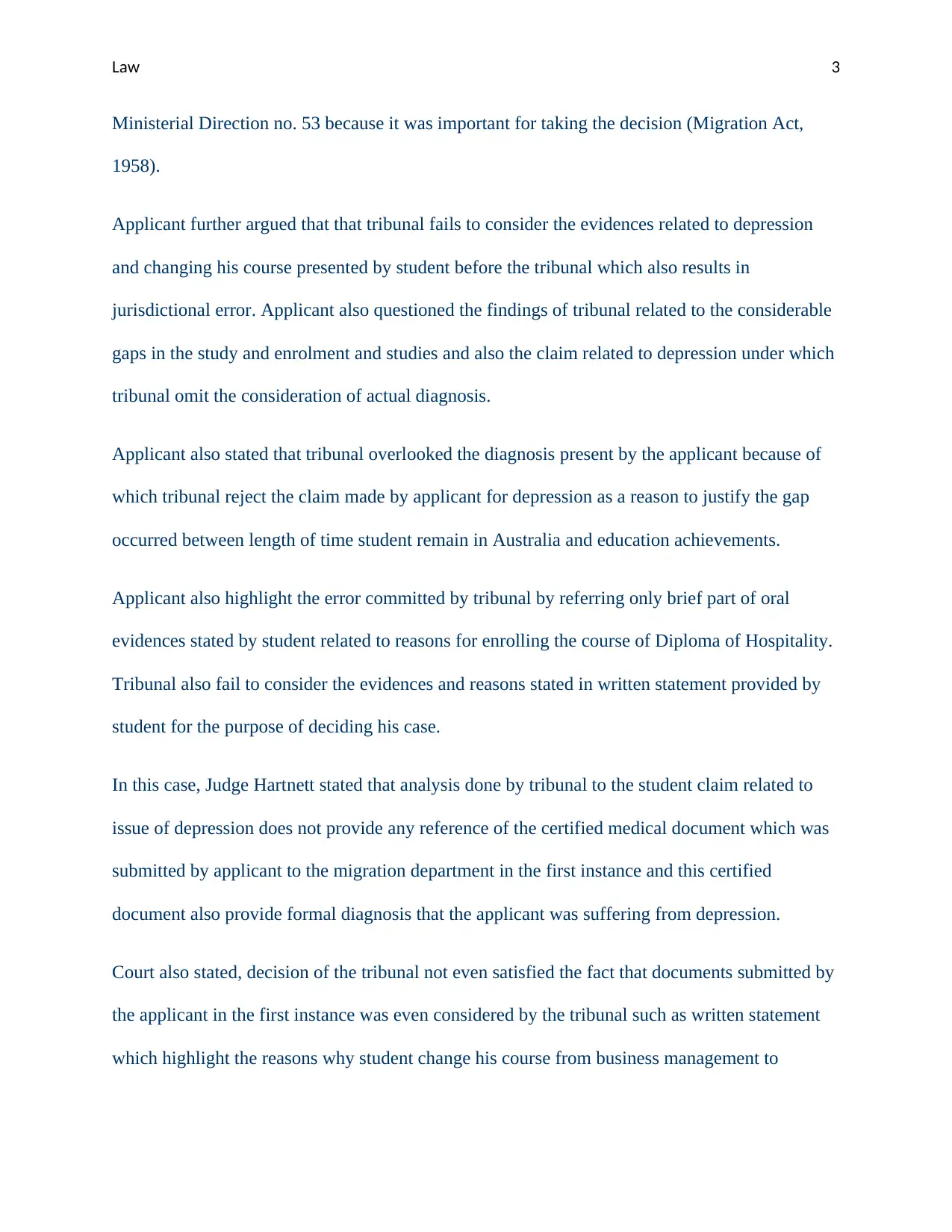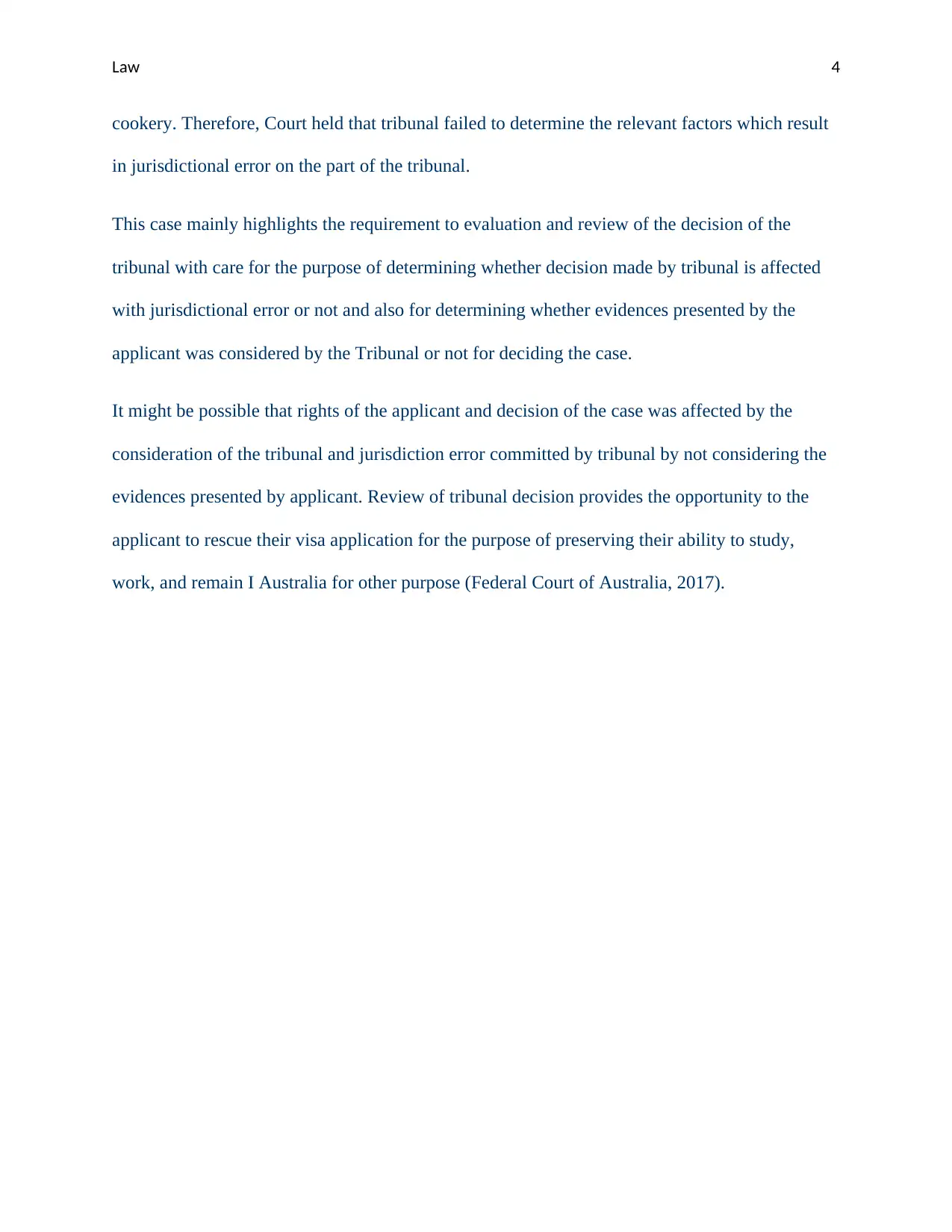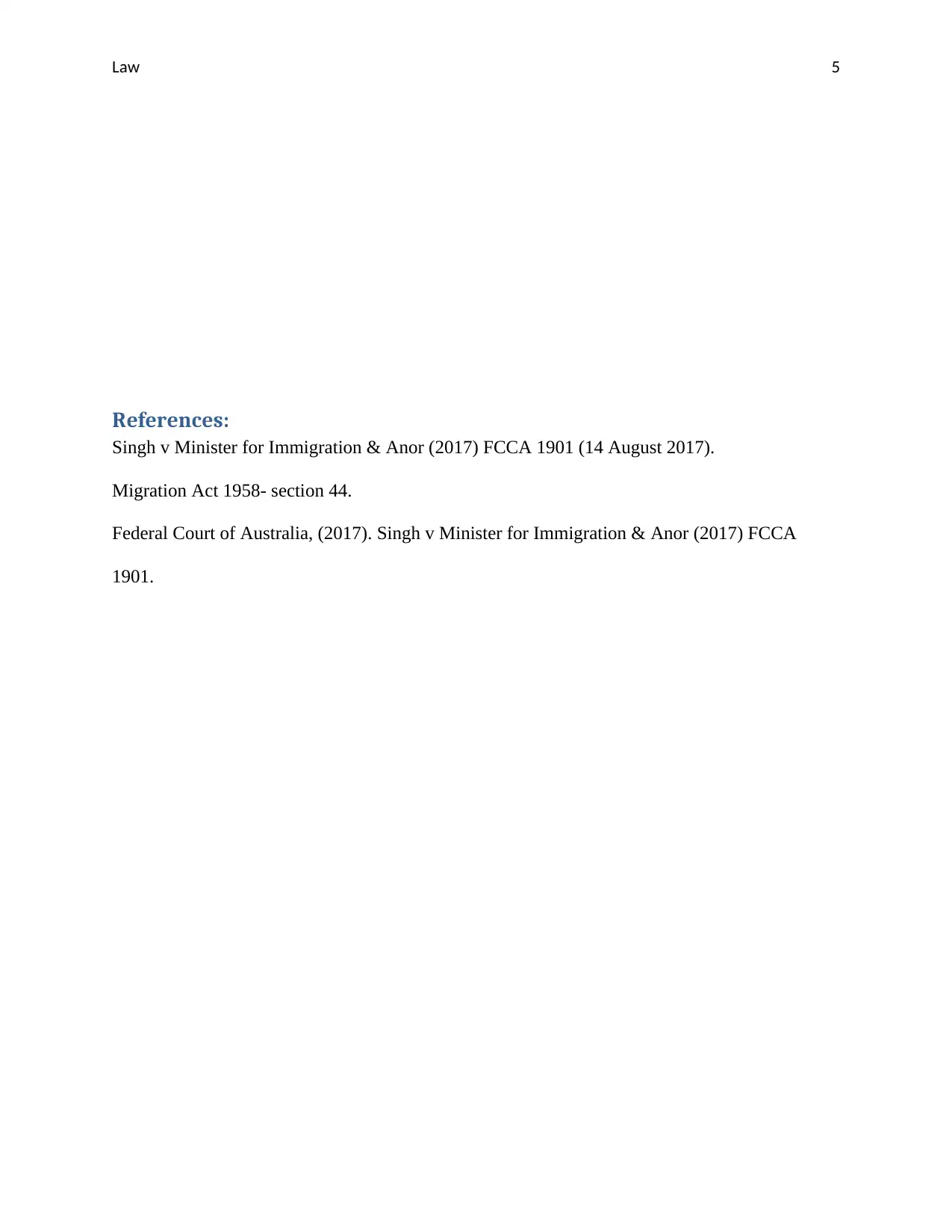Analysis of Singh v Minister for Immigration & Anor (2017) Case
VerifiedAdded on 2020/03/04
|5
|848
|306
Case Study
AI Summary
This case study analyzes Singh v Minister for Immigration & Anor (2017) FCCA 1901, focusing on jurisdictional errors in the context of a student visa refusal. The case revolves around a registered migration agent's challenge to an Administrative Appeals Tribunal (AAT) decision that affirmed the visa refusal. The central issue is whether the tribunal committed a jurisdictional error by failing to consider crucial evidence, including medical documentation of the applicant's depression and the reasons for changing his course of study. The court found that the tribunal overlooked essential factors, such as the certified medical diagnosis and the applicant's written statement, leading to a jurisdictional error. The case highlights the importance of carefully reviewing tribunal decisions to identify jurisdictional errors and ensuring that all relevant evidence is considered. The court's decision underscores the need for a thorough evaluation of the evidence presented by the applicant to determine whether the tribunal's decision was affected by jurisdictional error. This case serves as an example for identifying and determining jurisdictional errors, emphasizing the importance of considering all relevant factors when making decisions.
1 out of 5









![Case Study Analysis: Jurisdictional Error in Singh v Minister [2017]](/_next/image/?url=https%3A%2F%2Fdesklib.com%2Fmedia%2Fimages%2Fnt%2F784b3d6e2296413b84581e7ffabab491.jpg&w=256&q=75)


![[object Object]](/_next/static/media/star-bottom.7253800d.svg)